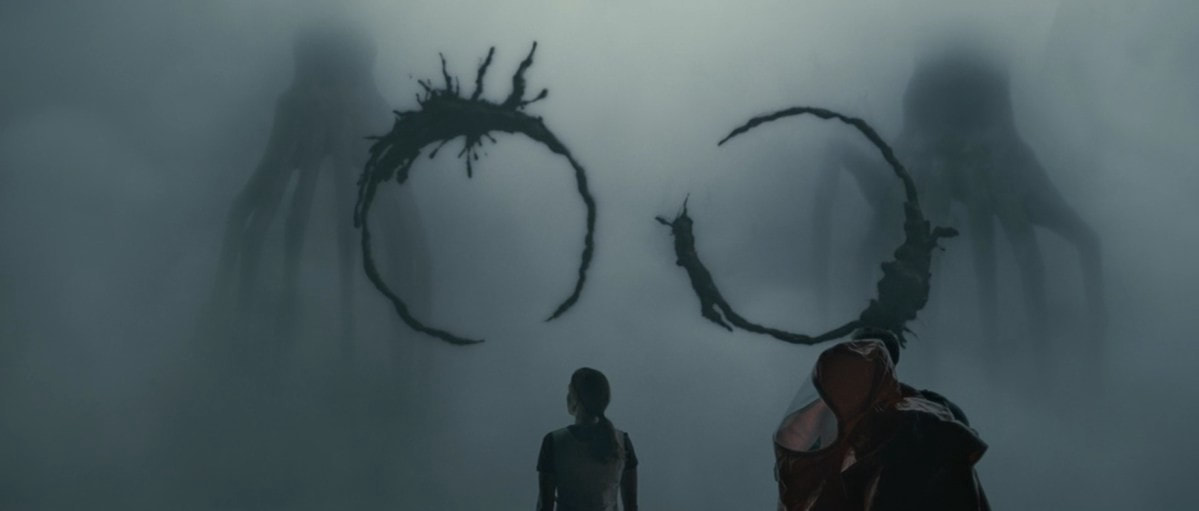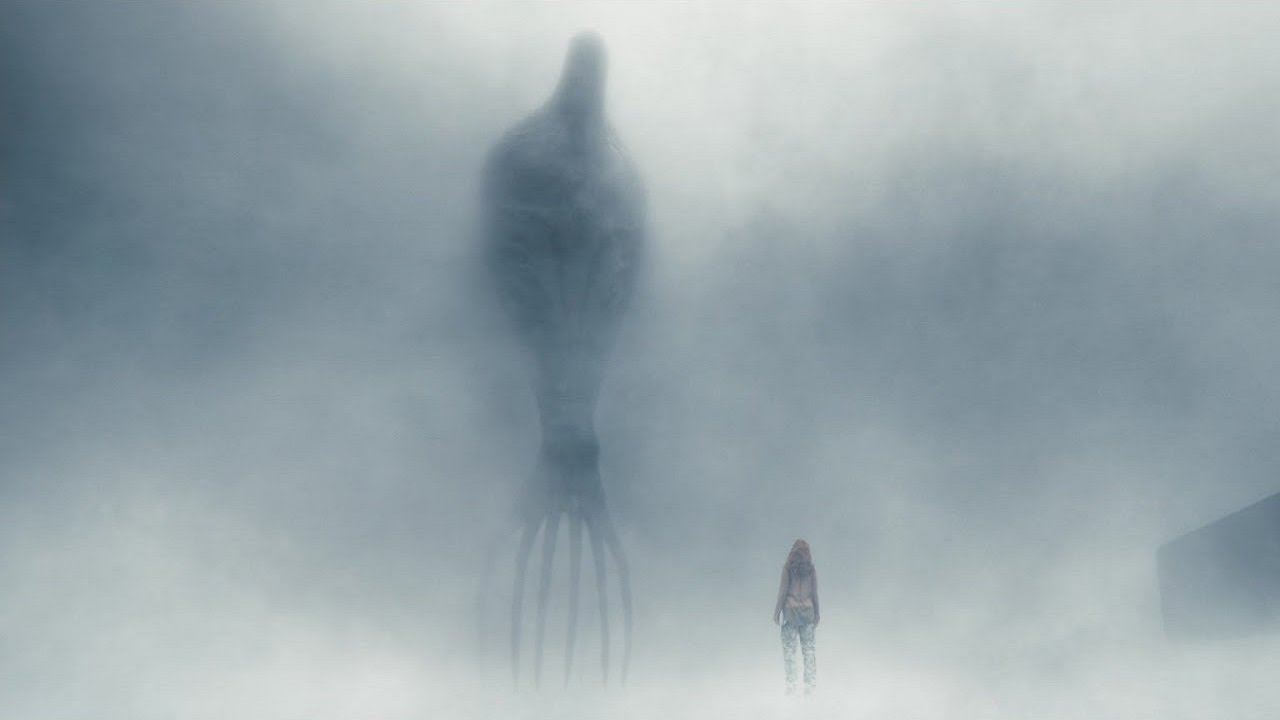Arrival’s story revolves around Dr. Louise Banks (Amy Adams), a linguistics professor who is called on to lead a team of scientists in learning an alien language. After 12 mysterious obelisks appeared in the sky, Banks and her team board one of these obelisks and discover it is a ship, and meet two aliens inside. These aliens are unlike any depiction of an alien previously seen in cinema. They are terrifying and strange; masses of dark flesh without clear form or distinction. These aliens are called heptapods, because of their seven legs. As Banks studies their language, she discovers that their sentences are written in a circle, and that they can be read starting anywhere in the circle. If we wrote our sentences that way, the phrase “I went to the store”, written circularly, could also be read as “Store. I went to the”, or any other combination. Banks becomes increasingly fascinated and engrossed in learning the language of the heptapods, until she eventually begins to even dream in their language. Eventually, she discovers the secret which the heptapods are trying to communicate with humans: that heptapods can see the future. Banks realizes that heptapods have a different conception of time than humans; one which is nonlinear. For heptapods, the future can be remembered just as easily as the past. When Banks realizes this, she also gains this ability, through the mastery of the heptapod language. The alien language reflects their circular conception of time, and learning this changes the way in which Banks conceptualizes time as well. The philosophy of the film is clear: the languages we speak can actually change the way that we think, including the way we think about time. But what sort of underlying beliefs does this philosophy have, and what are its implications?
In “On Truth and Lying in a Non-Moral Sense '', Friedrich Nietzsche wrote about language, and what language is at a fundamental level. Nietzsche held that all language was, at its most basic level, a metaphor. He gives an example of a leaf. No two leaves are exactly the same. But by developing the concept of a leaf, we drop all of the differences between the two leaves. Words form metaphors by likening two things which are really quite different. By making these metaphors, “every concept comes into being by making equivalent that which is non-equivalent” (Nietzsche, 147). Over time, people forget that these metaphors are metaphors, and take them as literal truth, despite the fact that really, no two objects are the same. Nietzsche called this process of turning a metaphor into perceived literal truth as the process of conceptualization. When we perceive a particular object, we immediately conceptualize it into a word which does not capture the individual aspects of the object, but categorizes it with other things in the world. In the example of the leaf, we perceive this green thing on a tree, in all its individual intricacies, and immediately conceptualize it as “leaf”, and categorize it with all the other leaves we’ve seen.
The final part of Arrival’s philosophy of language is actually addressed in the film. In one scene, Dr. Banks briefly refers to a concept called the Sapir-Whorf hypothesis. Edward Sapir was a well known Emergentist philosopher of language. It is Emergentism’s “aim to explain the capacity for language in terms of non-linguistic human capacities: thinking, communicating, and interacting” (Stanford). Arrival holds to an emergentist approach to language: it’s concerned with how language affects our cognition. Emergentists, like Nietzsche, hold that language is a series of constructions (like the notion of time). According to Arrival, our human languages form a construction of time which is linear. Yet the heptapods hold an entirely different understanding of time. This raises the question: Which of these understandings is the proper one?
Nietzsche would agree with both Villeneuve and Sapir on this point. Nietzsche would say that the linear or the nonlinear view of time is arbitrary. It’s arbitrary which way you perceive the world, because there’s no criterion for that. We would need criterion for correct perception, which is nonexistent. How could we form such a judgment, about which perception of the world is correct? Instead, Nietzsche would say that by learning the metaphors of language used by the heptapods, Dr. Banks has learned new ways of conceptualizing the world, and in doing so, also discovered new ways of perceiving it.
Works Cited
Scholz, Barbara C., et al. “Philosophy of Linguistics.” Stanford Encyclopedia of Philosophy, Stanford University, 1 Jan. 2015, plato.stanford.edu/entries/linguistics/.
Kant, Immanuel. Critique of Judgement. A & D Publishing, 2018.
Nietzsche, Friedrich, et al. The Birth of Tragedy and Other Writings. Cambridge Univ. Press, 2011.





 RSS Feed
RSS Feed
